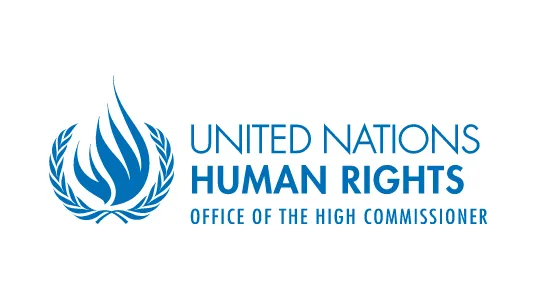A third of Myanmar’s population faces food insecurity: UN human rights experts
13 March 2025

UN human rights experts* today expressed alarm at the unprecedented food security crisis that is worsening an already devastating human rights situation across Myanmar, where more than 19.9 million people are currently in need of humanitarian assistance. Since the military coup in February 2021, the intensification of conflict across the country has led to an estimated 15.2 million people — nearly a third of Myanmar’s population — facing acute food insecurity in 2025. The experts issued the following statement:
“As the junta continue to lose territory to armed resistance groups, it has retaliated by blockading aid, and restricting humanitarian access, limiting trade routes, and targeting humanitarian workers, further compounding an already dire food crisis.
Furthermore, the Myanmar military’s attacks have destroyed agricultural equipment, and contaminated farmland with landmines and unexploded ordnance, exacerbating challenges for local food production. Even where arable land exists, there is a shortage of workers due to massive displacement and people fleeing conscription by the military.
Since 2021, armed clashes between the Myanmar military junta forces and armed resistance groups have been recorded in 96 per cent of Myanmar’s townships. The impact of the military coup has also severely impacted Myanmar’s agricultural output, leading to sharp declines in crop yields and undermining livelihoods. The resulting decimation of Myanmar’s economy has further impacted food security. In 2025, the cost of basic food staples, including rice, beans, oil, and salt, is projected to increase by 30 per cent compared to the previous year.
The recent US presidential executive order suspending US foreign aid will have devastating consequences on the situation in Myanmar and neighbouring countries which host refugees from Myanmar.
Large swathes of the country are now wastelands of conflict and economic collapse, where civilians struggle daily to secure even basic sustenance. The conflict has spared no one, driving unprecedented displacement, with the number of internally displaced persons (IDPs) surging to 3.5 million at the beginning of 2025, a staggering 72 percent increase in just one year. Those displaced are trapped in overcrowded camps and informal shelters with severely limited access to food, healthcare, and water. Constant insecurity has turned IDP camps into areas of extreme vulnerability.
The situation is particularly critical in Rakhine State, home to the Rohingya and other ethnic minorities. UNDP has reported that Rakhine State is on the brink of famine, with two million people at risk of starvation. The complete blockade of nearly all humanitarian aid to Rakhine State by the Myanmar military since 2023 violates international humanitarian law and likely constitutes a war crime. The food security situation in Rakhine has been further deepened by the ongoing conflict between the Arakan Army and the military, which has led to mass displacement, the destruction of rice crops and food stores, and limited access to seeds and fertilizers. Severe weather events have further impacted agriculture and food security. There are reports that the Arakan Army has imposed movement restrictions on Rohingya in Rakhine State in conflict areas, restricting farming, fishing and other livelihood activities. Women in displacement camps face severe food insecurity, struggling to feed their families while bearing the added burden of unpaid care work. Reports from Buthidaung Township, northern Rakhine State, have indicated that some IDPs have resorted to eating rice bran, typically used as animal feed.
The conflict has had a devastating impact on children, with 55 per cent now living in poverty. In 2024, diarrhoea outbreaks — worsened by critical shortages of medical supplies — claimed the lives of more than three dozen children. Approximately 85 per cent of internally displaced households face unmet needs with one in four families being forced to adopt emergency or crisis-level coping strategies to deal with food and income shortages.
High food inflation and declining household incomes have severely diminished dietary quality, leaving over 40 per cent of children aged 6–23 months without access to diverse and nutritious meals essential for survival, growth, and development. The full scale of child mortality is unknown, as the junta’s frequent internet shutdowns in large parts of Myanmar obstruct data collection and prevent accurate reporting on the impact of food insecurity, deprivation, and malnutrition. These systematic restrictions not only conceal the worsening crisis but also hinder efforts to provide urgent humanitarian assistance.
We call on the international community and world leaders to move beyond political rhetoric and take all available measures to ensure that life-saving food assistance reaches all populations in need. In order to counter the junta’s blockade of food, livelihoods and resources, international organisations and agencies must engage the National Unity Government and opposition forces, and work with reputable local humanitarian organisations with access to non-junta-controlled areas.
ASEAN, as the major regional alliance, must prioritise humanitarian assistance for those affected by the conflict in Myanmar, including by facilitating cross-border aid to those in border regions and providing refuge and substance to those seeking safety and security in neighboring countries.”
Announcements
28 February 2025
Asian NGO Network on National Human Rights Institutions , CSO Working Group on Independent National Human Rights Institution (Burma/Myanmar)
Open letter: Removal of the membership of the dis-accredited Myanmar National Human Rights Commission from the Southeast Asia National Human Rights Institution Forum

Progressive Voice is a participatory rights-based policy research and advocacy organization rooted in civil society, that maintains strong networks and relationships with grassroots organizations and community-based organizations throughout Myanmar. It acts as a bridge to the international community and international policymakers by amplifying voices from the ground, and advocating for a rights-based policy narrative.